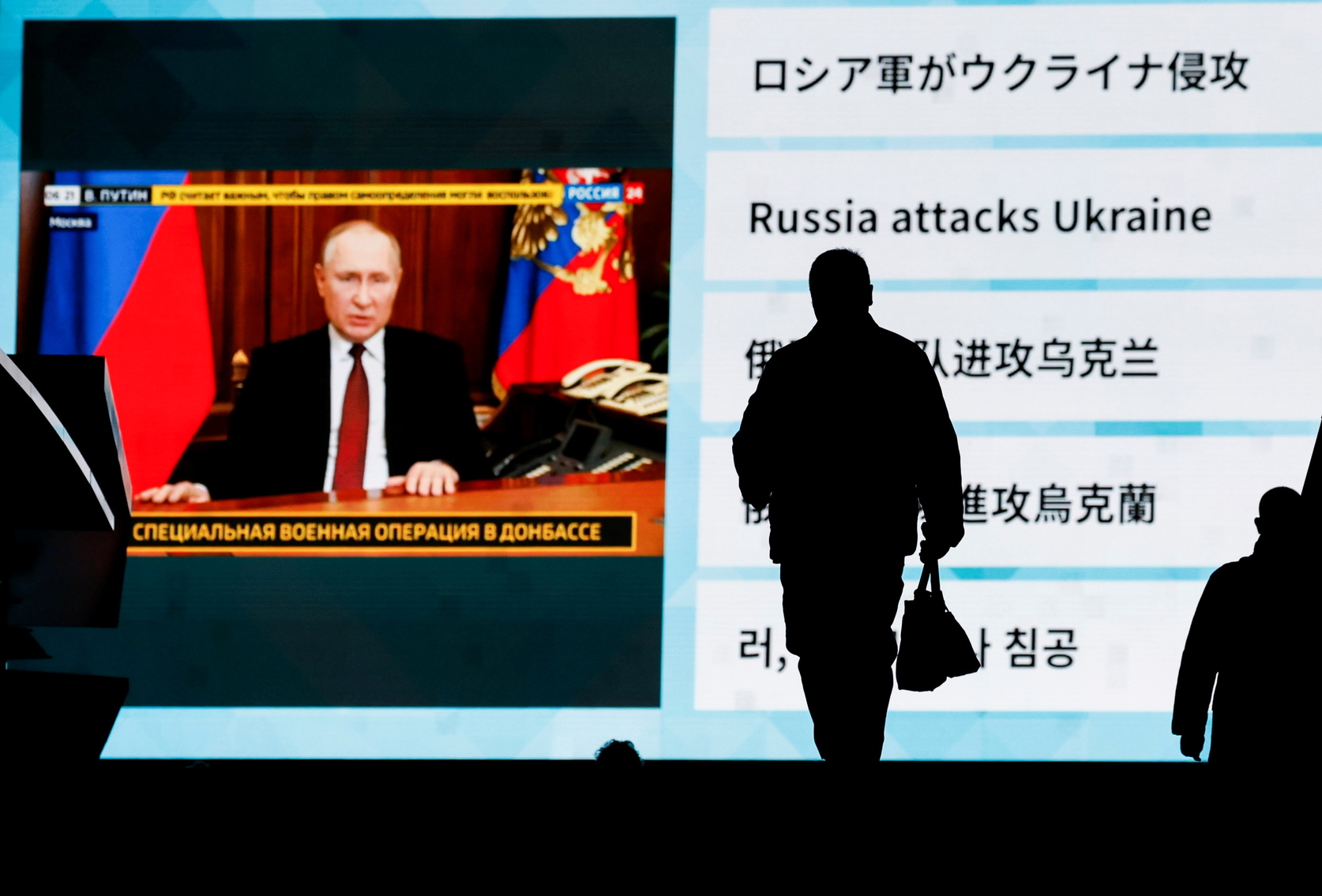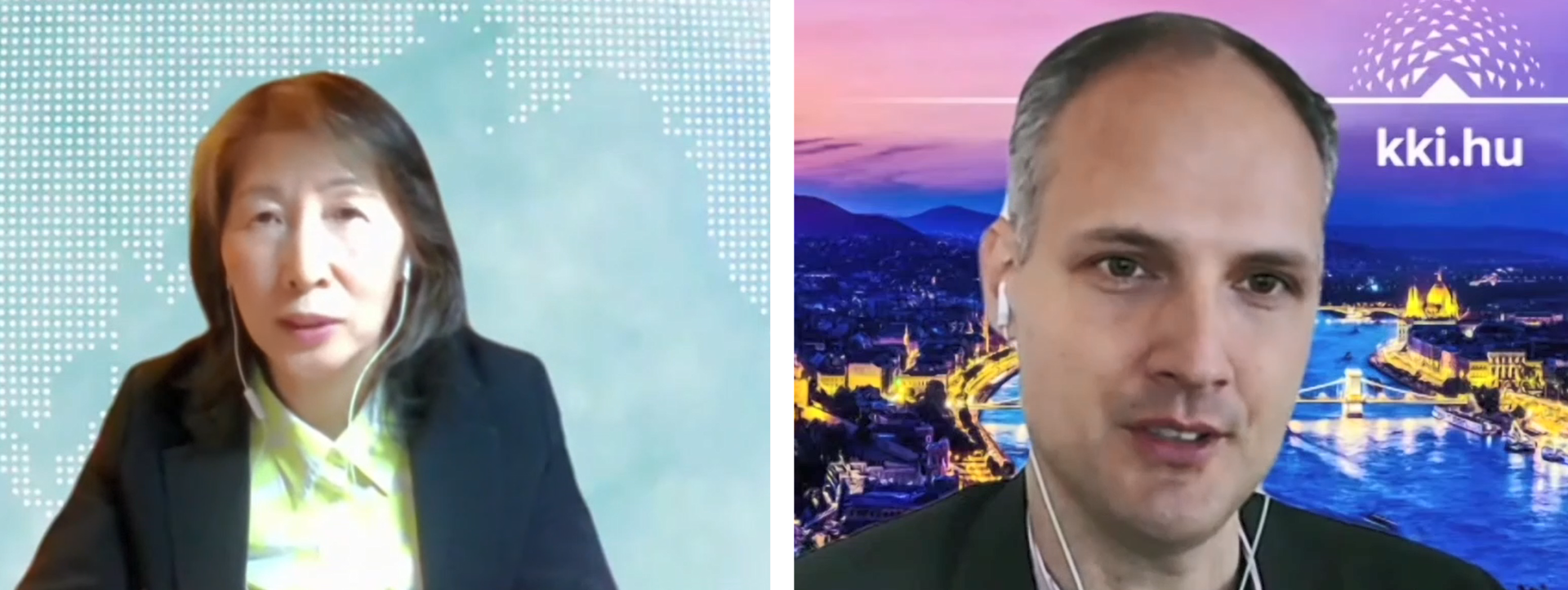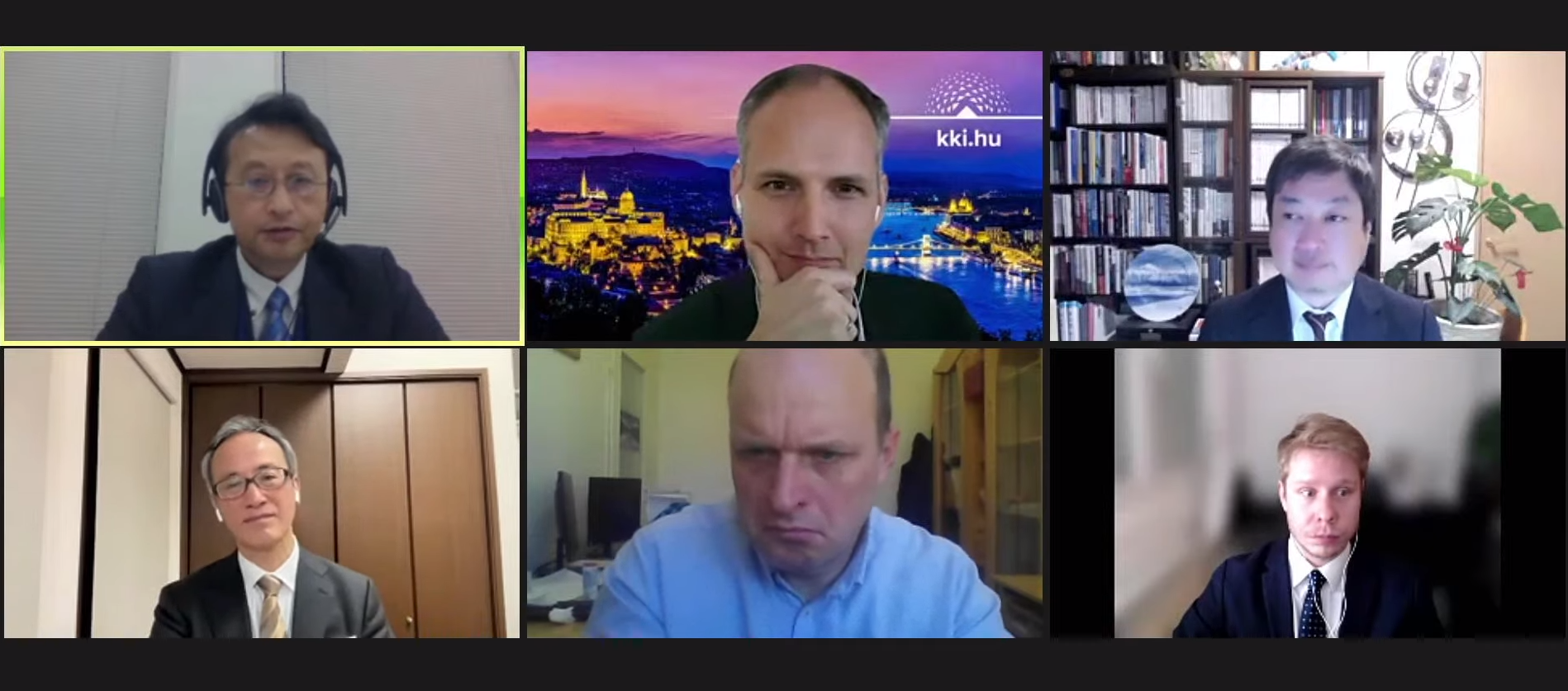On February 24, 2022, Russia shocked the world by invading Ukraine, drawing Europe into armed conflict and undermining the stability of the post WWII international order. To examine the profound implications of this conflict not only in Europe but also around the world, the Security Studies Program of the Sasakawa Peace Foundation (SPF) in collaboration with the
Institute for Foreign Affairs and Trade (IFAT), a Hungarian think tank, held an
online event entitled “Ukraine Crisis and International Prospects – Perspectives from Japan, Perspectives from Europe –.”
Hungary, as a NATO member country that shares a border with Ukraine, finds itself at the frontlines of the military and humanitarian crisis unfolding across Europe. Japan, while geographically far from the fighting, remains committed to upholding the international rules-based order as one of NATO’s “partners across the globe.” Further raising the stakes, countries including China appear to be watching the international reaction to Russia’s actions, potentially bringing the fallout from the conflict to East Asia.
To bring together perspectives from central Europe and East Asia, this event welcomed a panel of experts from Hungary and Japan for frank discussions regarding the security challenges facing both regions in light of Russia’s actions.
SPF Executive Director Junko Chano kicked off the event, noting that the “unilateral aggression by Russia may shake the foundation of the international order that has been well established after WWII.” She also asserted that Japan, as the only country to have suffered from atomic bombings, understands that Russia’s threat to use nuclear weapons would be “impermissible,” and she expressed her hope for a swift resolution to the crisis.


